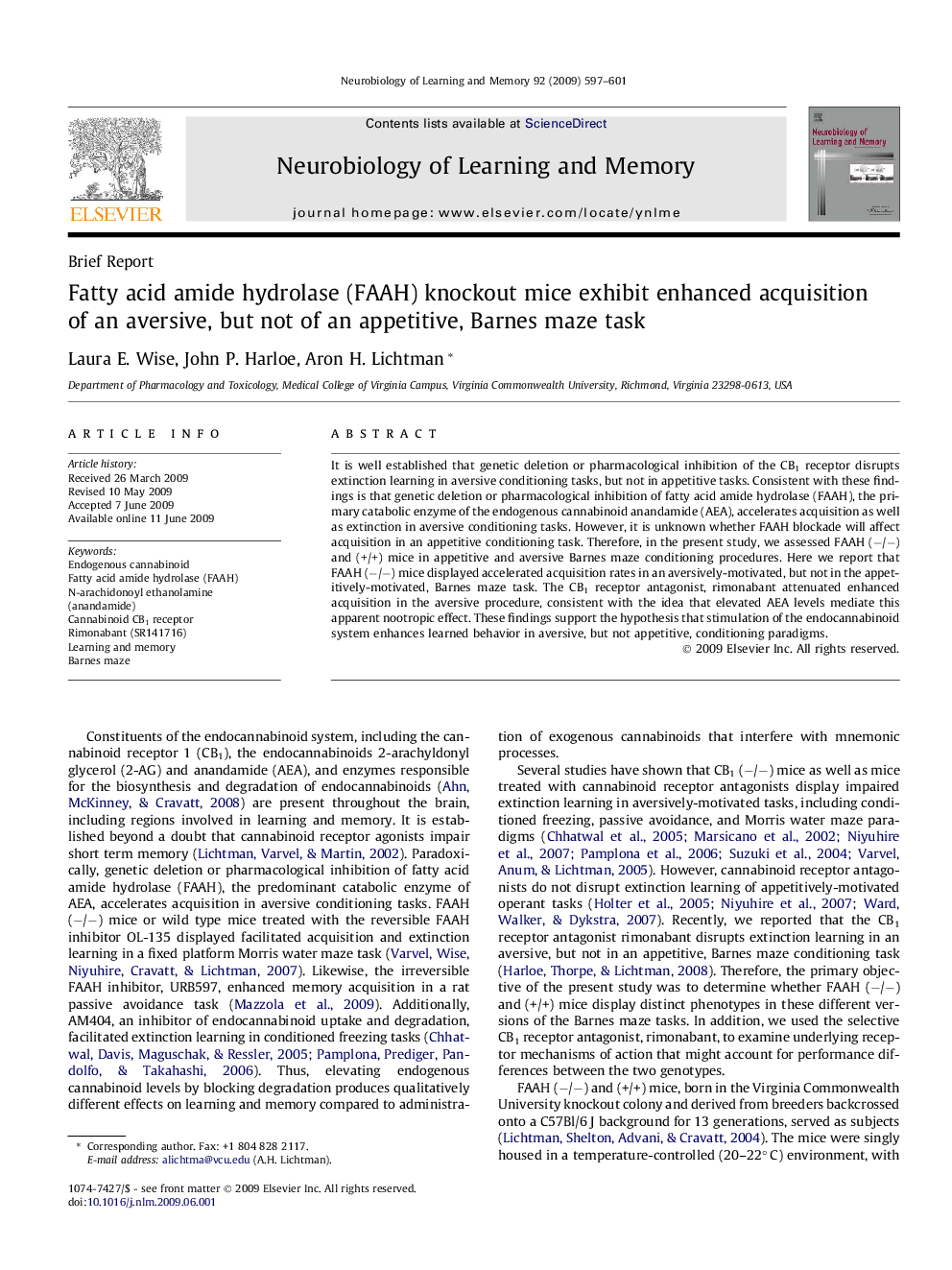| Article ID | Journal | Published Year | Pages | File Type |
|---|---|---|---|---|
| 936899 | Neurobiology of Learning and Memory | 2009 | 5 Pages |
It is well established that genetic deletion or pharmacological inhibition of the CB1 receptor disrupts extinction learning in aversive conditioning tasks, but not in appetitive tasks. Consistent with these findings is that genetic deletion or pharmacological inhibition of fatty acid amide hydrolase (FAAH), the primary catabolic enzyme of the endogenous cannabinoid anandamide (AEA), accelerates acquisition as well as extinction in aversive conditioning tasks. However, it is unknown whether FAAH blockade will affect acquisition in an appetitive conditioning task. Therefore, in the present study, we assessed FAAH (−/−) and (+/+) mice in appetitive and aversive Barnes maze conditioning procedures. Here we report that FAAH (−/−) mice displayed accelerated acquisition rates in an aversively-motivated, but not in the appetitively-motivated, Barnes maze task. The CB1 receptor antagonist, rimonabant attenuated enhanced acquisition in the aversive procedure, consistent with the idea that elevated AEA levels mediate this apparent nootropic effect. These findings support the hypothesis that stimulation of the endocannabinoid system enhances learned behavior in aversive, but not appetitive, conditioning paradigms.
